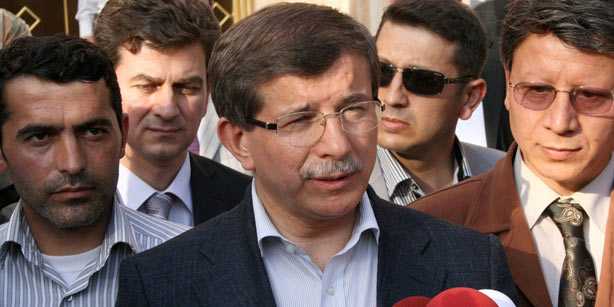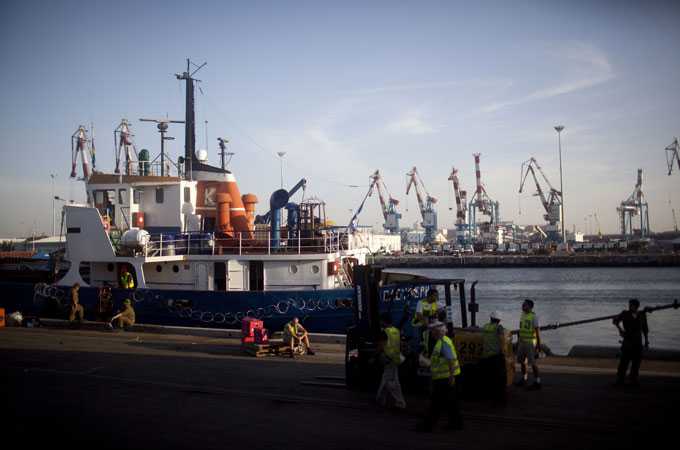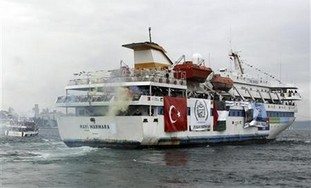The end of the media’s Israel fixation?
Since the uprisings in the Middle East, the media’s balance and scrutiny has been more proportionate
Carmel Gould
The Guardian, Wednesday 8 June 2011
Mavi Marmara

The Arab spring has had a remarkable effect on the media’s appetite for Middle East news which doesn’t revolve around Israel. Over the first three months of this year, correspondents usually engaged full time in counting Israeli bricks going down in the West Bank were dispatched to Tahrir Square and Tripoli, because something even bigger was happening.
A recent report by Just Journalism documents how in 2010, when the stirrings of mass discontent were surely detectable across the region, Middle East coverage by the British broadsheets and the BBC News website was disproportionately focused on Israel. Across all outlets and in news, comment and editorial categories, Israel was by far the most discussed country. In the case of the BBC, coverage of Egypt, Libya and Tunisia combined and doubled still amounted to less than was produced about Israel.
Recently, Greg Philo of Glasgow University Media Unit complained on these pages that having pored over 4,000 lines of text from main UK broadcast bulletins during the 2008/9 Gaza war, not enough was said about Palestinians killed by Israel prior to the events being reported. Nothing could better illustrate the media obsession with Israel than the presence of such quantities of material for Philo to wade through. It is highly doubtful that 4,000 lines of text from main UK broadcast bulletins exist in relation to the closing weeks of the Sri Lanka war, also in 2009, in which up to 40 times more civilians died than in Gaza.
It’s also worth noting that for all the dozens of headlines last month about Israeli prime minister Binyamin Netanyahu’s “defiance” and “refusals” regarding taking the necessary steps for peace, the fresh proclamations by Hamas about how they have zero intention of ever accepting the existence of Israel attracted virtually no coverage.
The battle for control over the narrative of the Israeli-Palestinian conflict has led to accusations that Zionists control the media. This is hard to believe, given the daily offerings of Jerusalem correspondents about settlement expansion, the Gaza blockade, loyalty oaths, racist rabbis, demolitions, checkpoints etc. If anyone is leaning on these reporters it plainly has no effect. It’s a different story in Gaza where Hamas thugs recently beat a Reuters journalist with a metal pole and threatened another with being thrown out of a tall building.
In reality, what detractors of Israel refer to disparagingly as the “Israeli PR machine” usually consists of defensive appearances on TV and radio by government officials, who are grilled by newscasters about whatever Israeli behaviour is being fixated upon that day. The themes are always familiar: why is Israel so obstructive to peace? Why does it breach humanitarian law? Why is its use of force so disproportionate? Mark Regev is one such representative and a particular focal point for venomous attack, generating headlines such as, “Mark Regev, Israel’s master of public relations” with the attendant accusations of being “horribly compelling”. Or inconveniently plausible.
Last year, however, something relatively unprecedented happened. In the midst of yet another Israel-centred media storm, after the deaths of nine passengers on the Mavi Marmara during a violent confrontation on the high seas, Israel released clear footage, backing up its contention that its forces were attacked by a baying mob on board the boat.
Regev was around but this time his smooth talking was less important. The news-viewing public had seen for themselves Israeli commandos descending one by one on ropes on to the deck and being set upon by peace activists with sticks and poles, while their comrades could be seen carrying chairs and other objects for use against the brutal invaders at the bottom of the scrum.
The media response to this vindicating Israeli evidence is instructive on the issue of the British narrative on Israel-Palestine. A stalwart of the Palestinian PR machine, Sarah Colborne of the Palestine Solidarity Campaign, who was on board the boat, was generally given free rein across the media to accuse Israel of inexplicable mendacity. However, it was only when subjected to a rare grilling on the BBC’s Today programme that she came unstuck. Sarah Montague’s questioning about who started the violence and the presence on board of wannabe martyrs, left her implausible tale of innocence seriously compromised.
The latent journalistic interest in previously unreported swaths of the Middle East landscape has revealed the horrors of Syrian torture chambers from which dead children are returned to their parents without their genitals, and endless other gruesome realities, previously concealed from British media consumers. Hopefully, in light of these major events, a more balanced and proportionate approach to reporting from a complex region will emerge and remain.
via The end of the media’s Israel fixation? | Carmel Gould | Comment is free | The Guardian.





